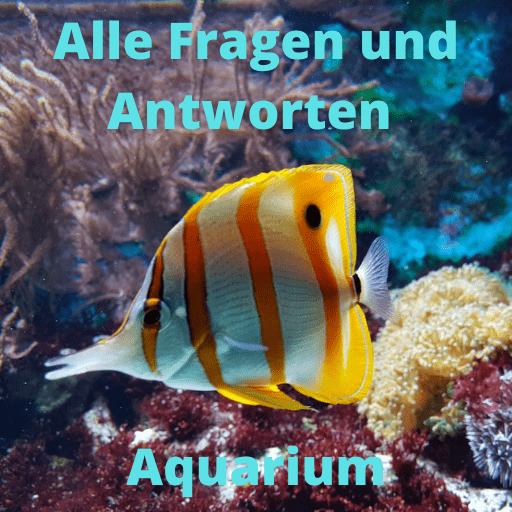25 Wichtige Hinweise zu Is Fishing Cruel?

- 25 Wichtige Hinweise zu Is Fishing Cruel?
- Does fishing hurt fish mouth?
- Is hook fishing cruel?
- Is it ethical to fish?
- Do fish suffer when caught?
- Are fish traumatized by being caught?
- Do fish heal after being hooked?
- Do worms feel pain when hooked?
- Do fish survive after being hooked?
- How does PETA feel about fishing?
- Does the fish feel pain?
- Do fish have feelings?
- Is fishing a blood sport?
- Is fishing humane?
- What if humans stop eating fish?
- Do fish survive after being hooked?
- Do fish survive after catch and release?
- What percentage of fish survive catch and release?
- Is it true fish don’t feel pain?
- Is there a way to go fishing without hurting the fish?
- Do fish feel pain in their lips?
- What is the point of fishing?
- Does throwing fish back hurt?
- Do fish mouths heal?
- Do Bass remember being caught?
Does fishing hurt fish mouth?
If you’re a fish, it sucks to have a hole ripped in your mouth by a hook. Actually, researchers found, it sucks less. New research out today in the Journal of Experimental Biology found that fish can’t suck up food as well after having a hole poked in their mouth by a fishing hook.09.10.2018
Is hook fishing cruel?
Catch-and-release fishing is cruelty disguised as “sport.” Studies show that fish who are caught and then returned to the water suffer such severe physiological stress that they often die of shock.
Is it ethical to fish?
Is fishing ethical? Being ethical means acting humanely towards others. Therefore capturing, killing and eating fish against their basic desire to live—from commercial practices to casual recreational anglers is considered immoral and unethical.22.03.2022
Do fish suffer when caught?
Yes, fish feel pain
Their complex nervous systems, as well as how they behave when injured, challenge long-held beliefs that fish can be treated without any real regard for their welfare.15.12.2020
Are fish traumatized by being caught?
“Barotrauma” is the term used to describe any of the number of injuries, or trauma, a fish may receive from rapid changes in barometric pressures. For fish caught by anglers, these rapid pressure changes occur when fish are reeled to the surface from deep water.
Do fish heal after being hooked?
Does A Fish’s Mouth Heal After Being Hooked? Fish that are classified as ‚Bony Fish‘ which is the majority of fish have the ability to heal from wounds. The damaged caused to a fish when hooked will heal over time.
Do worms feel pain when hooked?
But a team of Swedish researchers has uncovered evidence that worms do indeed feel pain, and that worms have developed a chemical system similar to that of human beings to protect themselves from it. The Swedish scientists, J. Alumets, R. Hakanson, F.11.09.1979
Do fish survive after being hooked?
Redfish survival rates range from 84% in Georgia waters to 96% in Texas waters. Like seatrout, hook position affected survival rates; more than 50% of the throat or gut hooked fish died. These studies demonstrate that catch-and-release-fishing works-most fish that are released survive.
How does PETA feel about fishing?
The PETA article made the following points: The PETA article says fishing is harmful, and that it is not family fun. It said fish have nerves (just like humans and other sophisticated animals) so they can feel pain (like a hook going into their lip or mouth)
Does the fish feel pain?
Summary: Fish do not feel pain the way humans do, according to a team of neurobiologists, behavioral ecologists and fishery scientists. The researchers conclude that fish do not have the neuro-physiological capacity for a conscious awareness of pain. Fish do not feel pain the way humans do.08.08.2013
Do fish have feelings?
Fish Have Feelings, Too: The Inner Lives Of Our ‚Underwater Cousins‘ : The Salt Jonathan Balcombe, author of What A Fish Knows, says that fish have a conscious awareness — or „sentience“ — that allows them to experience pain, recognize individual humans and have memory.20.06.2016
Is fishing a blood sport?
A blood sport or bloodsport is a category of sport or entertainment that involves bloodshed. Common examples of the former include combat sports such as cockfighting and dog fighting, and some forms of hunting and fishing.
Is fishing humane?
There is no humane way to fish. Even fish that are caught and released as “sport” often die from the resultant injury and trauma. Countless animals are indiscriminately caught and killed with fishing gear, while yet more are killed for competing with humans for fish.18.05.2016
What if humans stop eating fish?
If humans stop eating fish, the welfare of farmed fish, wild fish, and marine animals would improve in many ways. Firstly, marine ecosystems long-exploited by the fishing industry would have the chance to regenerate. Secondly, fish farms would be phased out, making way for more accessible plant-based alternatives.27.01.2021
Do fish survive after being hooked?
Redfish survival rates range from 84% in Georgia waters to 96% in Texas waters. Like seatrout, hook position affected survival rates; more than 50% of the throat or gut hooked fish died. These studies demonstrate that catch-and-release-fishing works-most fish that are released survive.
Do fish survive after catch and release?
The effects of catch and release vary from species to species. A study of fish caught in shallow water on the Great Barrier Reef showed high survival rates (97%+), for released fish if handled correctly and particularly if caught on artificial baits such as lures.
What percentage of fish survive catch and release?
Catch and release does have an impact on the environment, as catch and release seemingly kills somewhere between 5%-30% of fish when solid catch and release best practices are being followed. Trout and salmon are on the higher end of mortality rates and more resilient fish are on the lower end.
Is it true fish don’t feel pain?
Summary: Fish do not feel pain the way humans do, according to a team of neurobiologists, behavioral ecologists and fishery scientists. The researchers conclude that fish do not have the neuro-physiological capacity for a conscious awareness of pain.08.08.2013
Is there a way to go fishing without hurting the fish?
Artificial lures or flies – When you use artificial lures or flies, the fish are generally hooked in the lip, making it easier to remove the hook quickly. Single, barbless hooks – Properly sized, single barbless hooks reduce fish handling time and injury.21.04.2017
Do fish feel pain in their lips?
Numerous studies in recent years have demonstrated that fish feel and react to pain. For example, when rainbow trout had painful acetic acid or bee venom injected into their sensitive lips, they stopped eating, rocked back and forth on the tank floor, and rubbed their lips against the tank walls.
What is the point of fishing?
Recreational fishers fish for pleasure, sport, or to provide food for themselves, while commercial fishers fish for profit. Artisanal fishers use traditional, low-tech methods, for survival in third-world countries, and as a cultural heritage in other countries.
Does throwing fish back hurt?
Unfortunately, people who practice “catch and release” cause no less harm to fish than do other anglers. Fish who are caught and then returned to the water suffer such severe physiological stress that they often die of shock, or their injuries may make them easy targets for predators.
Do fish mouths heal?
With bony fish having the ability to regenerate completely new fins and gill filaments, it is not surprising that these fish can easily heal an injured mouth given proper hook removal techniques mentioned above.
Do Bass remember being caught?
Species such as northern pike and bluegill are known as poor learners and often will strike again only minutes after being caught and released. Other fish, such as largemouth bass, channel catfish, stripers and carp, have better memories. „The channel catfish has a very strong memory,“ Hill said.28.09.1986
Ich hoffe euch hat der Post zu Is Fishing Cruel? gefallen.
Falls ihr mehr über das Thema erfahren wollt – klickt die Links
Interessante Links zum Thema
Wikipedia Artikel zu Aquarium
Wikipedia Artikel zu Is fishing cruel?




